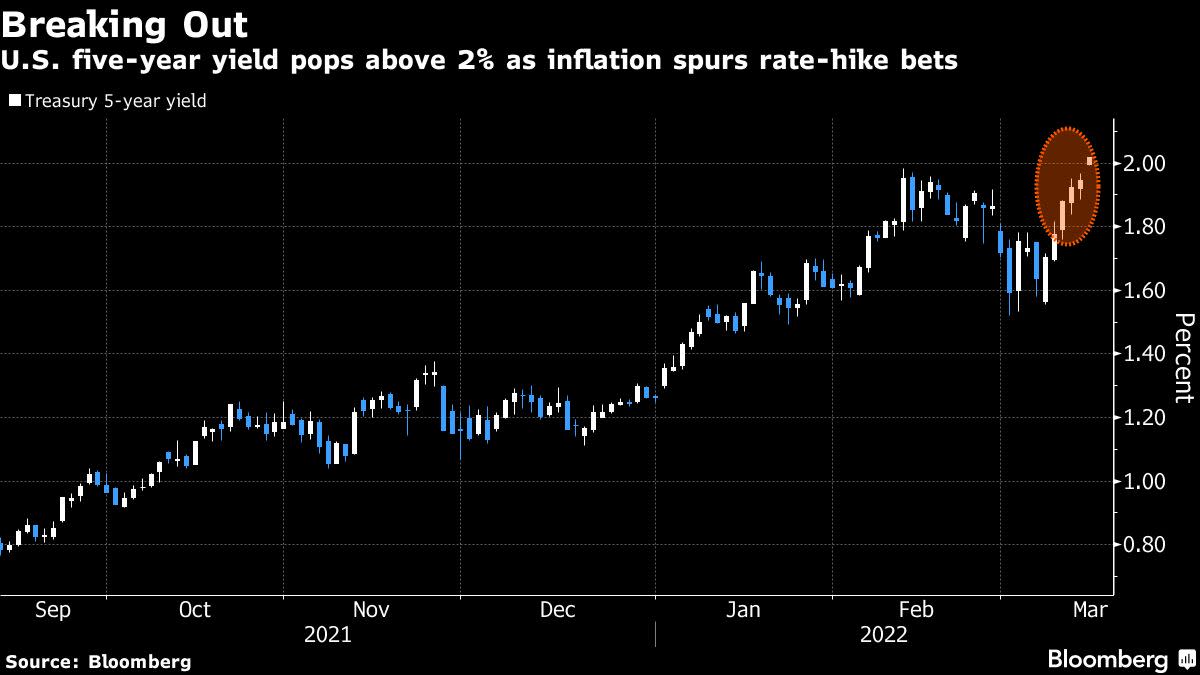
(Bloomberg) — Treasuries fell Monday to extend this month’s rout in global developed-market bonds as investors anticipate the inflationary impacts of the war in Ukraine will spur aggressive monetary tightening.
Five-year yields rose six basis points to surpass 2% for the first time since May 2019, while 10-year yields climbed four basis points to 2.04%. Yields across the curve are at or near multi-year highs, after a selloff last week delivered losses equivalent to Treasuries’ interest payments over the past year.
“Bonds are clearly under pressure, with long end yields up 25-30 basis points last week across the U.S., Australia, U.K. and Europe,” said Andrew Ticehurst, a rates strategist at Nomura Inc. in Sydney. “The Russia/Ukraine conflict adds to global uncertainty and will have some impact on growth, but with inflation already uncomfortably high in many countries, central banks will likely be forced to respond to heightened inflation pressures.”
The 30-year U.S. breakeven rate — a bond-market gauge of inflation expectations — hit 2.60% last week, the highest since 2013. Swaps traders are certain the Federal Reserve will raise interest rates 25 basis points this week and see better than 80% odds it hikes borrowing costs at each of the six subsequent meetings scheduled this year.
Treasuries lost 1.6% last week and they are down 3.8% this year, more than in any full year on record in Bloomberg data beginning in 1973.
Inflation Shift
After briefly benefiting from demand for havens when Russia invaded Ukraine in late February, Treasuries have resumed losing value as investors refocused on the potential for inflation at four-decade highs to erode returns.
European government bonds also reeled last week after the European Central Bank unexpectedly signaled an accelerated exit from monetary stimulus in response to price growth.
“Yields are reflecting a surprise higher shift upward in inflation expectations,” said Jim Caron, senior portfolio manager and chief strategist of global fixed income at Morgan Stanley Investment Management. “Many thought inflation would peak in the first quarter and fall. Now, with oil prices, inflation may stay high.”
©2022 Bloomberg L.P.